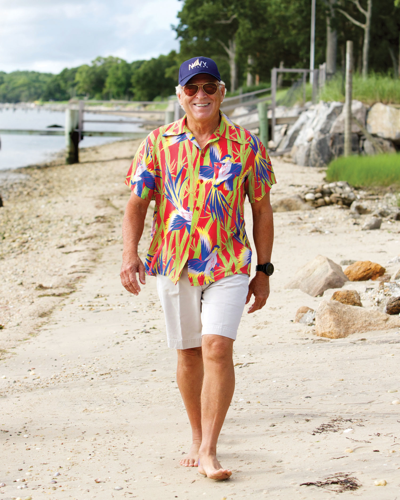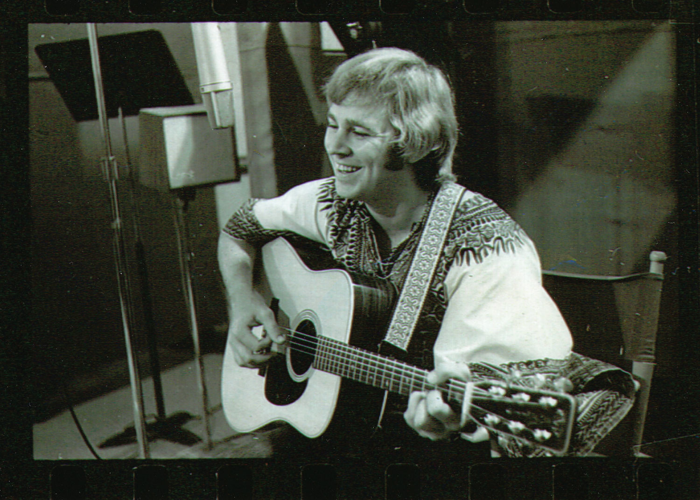
On Dec. 5, developers of the planned Margaritaville Nashville Hotel in SoBro gathered to break ground on the 217-room facility, planned to feature a rooftop entertainment area, timeshare units, two restaurants and a Starbucks. The site, they promised, would combine “a metropolitan latitude with Margaritaville’s island attitude.”
Jimmy Buffett was there only in spirit. His 1977 hit song inspired a business empire that includes Margaritaville restaurants and now hotels. Millions and millions of album sales later, the easy-listening beach-rock icon returns to the city where he got — or rather, attempted to get — his start.
“Couldn’t get nothing recorded,” Buffett said in a 1974 interview about his two years as a young songwriter living in Nashville. “Got depressed, got pissed off, got divorced and left. Best move I ever made.”
That move, of course, was hitching a ride with Jerry Jeff Walker down to Key West in 1971. Buffett emerged from the Keys with his signature beachy sound and persona, both of which he’ll bring to Bridgestone Arena on New Year’s Eve.
Despite Buffett’s complaints in that interview, he actually did get some music recorded while living in Nashville. (According to friends who knew him at the time, he lived in a house on Fairfax Avenue in Hillsboro Village and a cabin in East Nashville.) The two albums he made in that era, 1970’s Down to Earth and 1971’s High Cumberland Jubilee, feature none of the island breeziness that defines Buffett’s work from just a few years later, including 1973’s A White Sport Coat and a Pink Crustacean and his ultimate breakout record, 1977’s Changes in Latitudes, Changes in Attitudes.
“He was more interested in doing his thing, whatever we wanted to call it then,” says Travis Turk, a recording engineer who worked on Buffett’s early Nashville albums. “I don’t think we categorized it. We just cut some music that he liked and we liked, and put it out there and hoped that it would find a genre to play in.”
It didn’t.

From left: Travis Turk, Buzz Cason, Ginger Russell and Jimmy Buffett, 1971
Down to Earth was not a big seller. According to some — memories differ here — the label, Barnaby Records, either decided not to release High Cumberland Jubilee or conveniently lost the masters. The record eventually saw the light of day in 1976.
“After we found out that High Cumberland wasn’t coming out, Jimmy and I boarded a train down at Union Station … to New York,” says Buzz Cason, the producer, backing vocalist and songwriter who co-wrote many of Buffett’s early songs. “We decided that’d be a good way to chill out. We went to New York and got turned down by every label we went to.”
While Buffett was in Key West, he wrote a note to Cason thanking him for all he’d done. “I have found me a home,” Buffett wrote of the island. A song by that name showed up on White Sport Coat, Buffett’s first album after that fateful trip to Key West.
Lanny Fiel, a guitarist from Texas who played on several of Buffett’s early albums, remembers Buffett as “just a regular guy.” After Down to Earth and High Cumberland Jubilee fizzled out, Fiel made his way back to Lubbock, where his father was sick in a nursing home. Buffett visited Lubbock on a solo tour of college campuses, and while passing through he stopped in to visit Fiel’s father in the facility.
“My dad was in real bad shape,” Fiel recalls. “Jimmy came in, and he was real gracious about coming in to see him. My mom just loved him, just for that little bit of time the day he came by and did that.”
But Fiel also remembers a rowdier Buffett. When the singer returned to Nashville in 1973 to record Living and Dying in 3/4 Time at Woodland Studios in East Nashville, he flew Fiel in to play on the sessions. Fiel says that the night after the group finished recording, he borrowed Buffett’s rental car — a green Gremlin — to go pick up some food and bring it back to the King of the Road Motel, where they were staying. (The Clarion Hotel near the Spring Street interchange now sits on that site.) Buffett was apparently unaware of the car’s whereabouts.
“I’m in the room, and I heard all this thunder and stomping and screaming and hollering,” Fiel says. “It was Jimmy running down the hall. Clunk, clunk, clunk. It was Jimmy screaming that Buford Pusser was gonna whip his ass.”
That’d be the Buford Pusser, onetime McNairy County sheriff and gangbuster who inspired the 1973 film Walking Tall. Pusser happened to be staying at the King of the Road the same night. According to Fiel, Buffett was unaware that the Gremlin had been borrowed, and he managed to disturb Pusser while searching the parking lot for it.
“He said, ‘Buford Pusser is gonna whip my ass,’ and that’s the last word I heard out of Jimmy.”

Jimmy Buffett, 1971
Fiel eventually returned to Texas, where he played and taught fiddle for a number of years. Like Cason and Turk, Fiel says he was never surprised by Buffett’s eventual success.
“There’s a saying,” says Fiel. “ ‘If you’re trying to be like somebody else, who’s going to be like you?’ I was busy trying to be somebody else, not paying attention to who I was. I don’t think Jimmy was trying to be anybody else, and that’s probably why he got where he got.”







